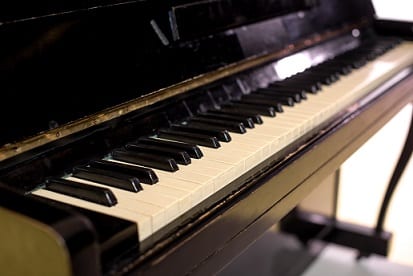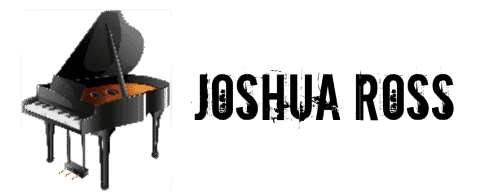As an Amazon Associate I earn from qualifying purchases.
Keeping a piano in good condition is important. Regular tuning helps the instrument last longer, as well as cleaning and having it regulated every so often. Occasionally pianos will lose their tune much faster than anticipated, and that’s where humidifiers really come in handy.
So, do pianos need humidifiers? No. Pianos can maintain their tune as long as the temperature in the room is monitored regularly. Occasionally a humidifier system is needed, especially if a piano is not located on an inside wall and subject to radical temperature changes.
While a humidifier is not required for a piano, it’s incredibly helpful when a piano is exposed to constantly changing temperatures. In this article, I’ll describe some of the major benefits of using humidifiers and which dehumidifiers work best for pianos. I’ll also share some helpful alternatives to keeping your piano in great shape for years to come.
Want to Learn Piano?Click Here

How Does Humidity Effect Pianos
Pianos are made up of primarily two materials, wood, and metal. Because a piano is made of wood, there has to be a specific level of moisture in the air for a piano to remain in stable condition.
Too little water can cause the piano to dry out and shrink. Too much water in the air will cause the wood to swell, which leads to tuning and regulation issues. Anything from the voicing to the actual touch and response of the keys is affected by poor humidity control.
When the humidity levels experience rapid change, the piano can suffer extreme damage. Examples of this are the delicate materials inside the piano coming unglued or shifting out of place. This especially affects the felt, rail pins, strings, and dampers.
The wood itself can actually crack, especially in the thinner places such as the soundboard. This can lead to expensive repair costs. This is why it’s never a good idea to put a piano on an inside wall or near a window.
What Is The Best Humidity Level For A Piano
The ideal humidity level for a piano is 50% in the hotter months. In cooler temperatures, it’s recommended to keep the humidity levels around 40%.
The more consistent the humidity levels, the better your piano will perform. This means less out of pocket expenses for tunings and patchwork.
The moisture can change quickly if the area has no climate control. When that affects the wood, it can begin to deteriorate. Think of the piano as you would a piece of expensive wood furniture.
How To Check Relative Humidity
If you want to check the relative humidity in the area you will need a hygrometer device. Hygrometers work by measuring the resistance of air.
From there it performs a calculation and determines the relative humidity. Hygrometers have metal plates that allow air to pass through them.
If there is more moisture in the air then those plates will hold less of a static charge, which is how the calculations take place.
A simple electric hygrometer like this one is very useful for making sure the moisture in the room doesn’t have a negative impact on your piano.
Benefits Of Humidifiers And Dehumidifiers For Pianos
Humidifiers and dehumidifiers may seem like a big investment for a piano, especially if you purchase a complete humidifier control system that can do it all. However, they can save you a headache in the long run. Here are a couple of benefits to using humidifier control systems for pianos.
- Longer tuning stability
- The wood remains in great shape
- The piano can be placed in more locations
The biggest benefit of using humidifier control systems is that they keep the piano in tune much longer. Stable temperatures and moisture translate to much more stable tuning overall. Those who use humidifiers will find that their pianos need tuning less frequently.
This can save on costs because it tuning a piano is expensive. It’s still recommended that you have your piano tuned at least once a year for it to remain in good working condition.
The other benefit is that the wood remains in great shape. Humidifier control systems help limit the risk of cracks in the soundboard which can affect the overall tone of the instrument.
Once the wood is damaged it’s really tough to repair the instrument without a complete rebuild.
Another small benefit for piano owners is that you have more flexibility as to where you can place your piano. Because a humidifier is in the room or installed under the instrument it can sit next to a window or outside wall without being affected as much.
Even in the case of moving a piano or putting it in storage, humidifier control systems installed underneath them can help preserve its condition even in extreme situations.
What Is The Best Dehumidifier For Piano
Ideally, pianos need a complete humidity control system that can do everything. This not only includes dehumidifiers but humidifiers and humidistats to control those levels.
For the most part, pianos will battle with too much moisture in the air, which is why dehumidifiers are the most sought after devices.
Dehumidifiers suck up the moisture out of the air and store in a reservoir. Most machines have the ability to adjust automatically depending on the temperature in the room.
There are several options you can choose from, but I’ll share with you some options that you may want to consider.
The first is the Goldenrod Dehumidifier which you can find here. Because of the design, this dehumidifier can easily fit inside an upright or grand piano. For most pianos, you can simply install it right underneath the keyboard where the key slip is.
You may want to nail or drill it in place so that it doesn’t move. For upright pianos, you can open up the lid and drill it on the inside away from the strings and hammers. A 12-inch rod can cover around 100 cubic inches of space which is plenty enough.
If you’re not comfortable installing a dehumidifier inside of the instrument, you could always place a standalone dehumidifier in the room itself. Something like the Ivation 70 works perfectly for this.
This is a standalone dehumidifier which features a large water reservoir. It can hold up to 2.25 gallons and covers up to 4500 cubic square feet. That’s really helpful if your piano is located in a large room especially.
This dehumidifier offers some unique features like programmable schedules, filter alerts, and customizable fan speeds. The benefit of using a dehumidifier like this one is that you could use it for other things as well, not just your piano. Also in really humid climates like Florida, it does a much better job at moisture control.
Do You Really Need A Humidifier Control System For Your Piano?
While humidifier control systems are great choices for keeping pianos in great condition, they aren’t always necessary. In fact, simply controlling the temperature in the room is just enough for most piano owners.
Before purchasing any kind of humidifier control system you should use a hygrometer to test the moisture in the air. Test this at various points of the day so you have an accurate idea of what you’re dealing with.
If you find the humidity levels are a little high, consider some things you could change in the home to have the same impact.
This can include closing the curtains on windows, changing the temperature in the room, covering the piano, or sticking a simple humidifier in the room instead of installing a complete system on the instrument.
The biggest drawback of poor humidity levels is the piano losing its tune. Here are some tips to tell if your piano is out of tune, and some additional tips to prevent that.
Hello & thanks for stopping by! I’m a professional concert pianist and piano instructor. In the United States, I’ve given successful performances in several places including New York, Florida, Connecticut, & New Jersey, I have also performed internationally in Italy and made my Carnegie Hall debut in 2014. I enjoy blogging about the piano, the art of performance, general music, current events and the latest in music production.

How To Avoid Piano Injuries - Joshua Ross
Tuesday 19th of February 2019
[…] Another way to protect pianos is to use a dehumidifier so that the tuning remains stable, and all of the action parts remain in position. […]